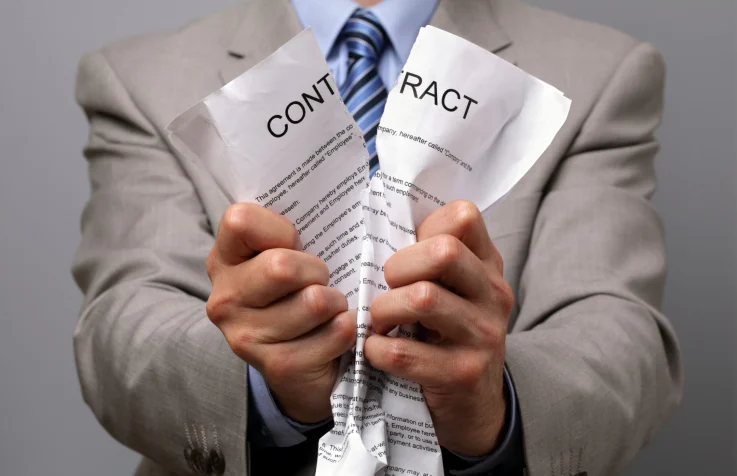Regardless of the number of tenants you have in your house, it is safe to affirm that you will enjoy lots of perks that come with being a landlord. Besides the income that comes with renting out your house every month, you can expand your rental property business while having a portfolio that can facilitate financial success and freedom.
Agreements are reached between the tenant and landlord. Even though many laws are available to protect the rights of a property right owner, tenants also have rights. With these rights, tenants can be protected from illegal actions from any unreasonable landlord. Wrongful evictions can lead to numerous unwanted consequences you don’t want to face as a landlord.
For this reason, it is imperative, as a landlord, to understand the various reasons, as well as the possible ways tenants can sue you. In this comprehensive guide, we will take a deep dive beyond the obvious!
Why Can Your Tenants Sue You?
There are various reasons why your tenants can sue you. This section will discuss some of these reasons.
Inhabitable Property
This represents one of the most common reasons why tenants and their landlords are often at daggers drawn. If the property and the environment are inhabitable, probably due to exposure to various health risks, then the tenant has every right to sue you. After all, no one wishes to live in a place that can pose danger to their health.
For instance, if there is mold damage, a rat infestation, and other unwanted health risks in an environment, the landlord is charged with the responsibility of fixing this issue. If your tenants can’t live in your rental because it’s dangerous or poses a health risk, it may be considered uninhabitable. Then, you must repair these issues immediately. Failure to do so will attract unwanted consequences, including legal action against you. You can only escape this if tenants decide to leave the property and move on, which is not always the case.
Invasion of privacy
You can provoke the ire of your tenants if you storm the property without any notice. While the property is officially yours – as the landlord – it is never within your rights to enter an occupied residence anytime you want. According to tenancy legislation, about 24-hour notice must be given before you can visit a rented residence.
The notice must highlight the reason for the access and this must be done in writing. Otherwise, if a landlord fails to honor the privacy of their tenant, then the latter might rightfully sue the landlord in court.
Not paying back your tenant for a repair
There are times when tenants will need to carry out repairs on a rental property since the landlord refuses to do so at the right time. In this case, you must repay your tenant for the amount that is spent on the repair. This is so particularly when the repair is needed to promote the health of the tenants.
Failure to pay back your tenants for relevant repairs that have been carried out on your behalf might result in a lawsuit you can avoid. Indeed, your tenants can sue you for the money spent, as well as other damages.
Wrongful Eviction
It is no stretch to affirm that no landlord wishes to evict their tenants forcefully – they all hope to avoid it. Yet, some unreasonable tenants might make this unavoidable. With this in mind, it is worth noting that certain eviction proceedings are set aside for landlords to follow, irrespective of how angry or frustrated they might be with their tenants.
Besides kicking them out of your property wrongfully, there are many other things you cannot do to your tenants, regardless of how annoying they might be. Some of these are listed as follows:
- Change their locks without their knowledge
- Cut off the utilities to your property
- Force your way into their apartment without their agreement or moving out their properties.
Furthermore, it is imperative you understand that you can never evict your tenants from your home as a form of revenge. With this in mind, your tenants can rightfully sue you for wrong eviction if the following happens:
- If you evict them because they filed a complaint with the government for an inhabitable environment
- If you evict them for notifying you of bad living conditions, including mold and infestation
Regardless of your reasons, you can never evict your tenants wrongfully. Otherwise, they will rightfully sue you for damages and they will most likely win.
Injury at your property
If your tenant gets injured at your property due to your negligence, then they might sue you. This can happen, particularly when the risks have been brought to your attention. Tenants can have grounds for a lawsuit if they suffer an injury inside or outside your property. The case might even become much stronger if the tenants informed you of the situation, but you ignored it.
Your building must be safe for your tenants to live in – it is your responsibility. For this reason, you should learn some examples of issues that can lead to a lawsuit against you:
- A damaged and unrepaired sidewalk, which leads to a serious fall
- A faulty ceiling fan drops and injures the tenant
- Ignoring leaky roofs and pipes, which can cause molds that can result in serious health issues.
- A loose handrail, which can cause an accident
The probability of a lawsuit against you, as a landlord, is higher when your actions could have prevented a serious injury. After all, you are responsible for taking good care of your property to ensure that the tenants are safe from avoidable injuries. For this reason, make an effort to make your property habitable.
Conclusion
Nothing is better than coexisting perfectly with your tenants while creating an idyllic environment for every party to thrive. However, to achieve this, you must find a way to play your part, as the landlord. Even though you have the right over your property, there are various situations that can make your tenants sue you and win. For this reason, as you learn more about them, do all you must to avoid those situations.






